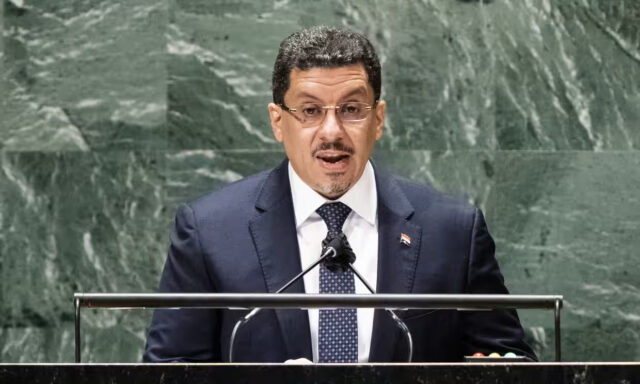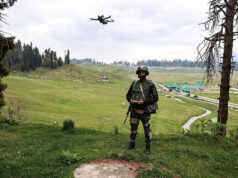
Ahmad bin Mubarak, the Prime Minister of Yemen’s internationally recognised government, has resigned from his post, citing his inability to exercise constitutional powers and implement needed reforms. His departure marks a significant shift in the leadership of a government already fragmented by years of internal disputes, foreign influence, and an ongoing civil conflict.
In a statement posted on X (formerly Twitter) over the weekend, Bin Mubarak announced he had met with Rashad al-Alimi, chairman of the Saudi-backed Presidential Leadership Council (PLC), and submitted his resignation. The move ends his brief tenure as premier, which began on February 5, 2024.
“I could not exercise my constitutional powers and take the necessary decisions to reform government institutions or implement rightful governmental changes,” Bin Mubarak stated in his resignation letter, which he made public online.
A Turbulent Tenure Marked by Political Infighting
Multiple sources within Yemen’s government, speaking on condition of anonymity to AFP, confirmed that Bin Mubarak had been embroiled in protracted disputes with Alimi and other top officials. The disputes were largely over the prime minister’s efforts to expand his authority beyond the boundaries of his office, as well as his attempts to enforce anti-corruption measures, including the suspension of several ministerial budgets — notably the defence ministry.
Analyst Mohammed al-Basha of the US-based Basha Report Risk Advisory told AFP that Bin Mubarak had increasingly sought powers akin to those of the presidency, straining his relationships with other members of the PLC. “His drive for greater power – viewed by many as fuelled by personal ambition – led to repeated confrontations with key ministers and most council members,” Basha said. “Over time, this power struggle eroded trust.”
Despite these tensions, Bin Mubarak claimed a number of achievements during his short time in office, including fiscal and administrative reforms, and steps toward curbing widespread corruption.
Background and Political Significance
Ahmad bin Mubarak, a long-time critic of the Iran-backed Houthi rebels, previously served as Yemen’s ambassador to the United States, its envoy to the United Nations, and foreign minister. His political career has been shaped in part by personal confrontation with the Houthis, who abducted him in 2015.
His resignation comes at a time of heightened regional instability. The Houthi movement, which seized Yemen’s capital Sana’a in 2014 and continues to control the country’s most populous regions, is waging a missile and drone campaign targeting Israeli interests and international shipping routes in the Red Sea and Gulf of Aden. The group claims the attacks are acts of solidarity with Palestinians amid the ongoing war in Gaza.
Though the civil war in Yemen has de-escalated since a United Nations-brokered truce in 2022, the country remains deeply divided. The Saudi-led coalition, which intervened in 2015 in support of the ousted Yemeni government, has struggled to achieve lasting military or political success.
Analysts view Bin Mubarak’s departure as potentially stabilising for the internationally recognised government. “His resignation should ease internal tensions and reduce the deep divisions that have plagued Yemen’s leadership — a necessary and positive step toward restoring cohesion,” Basha noted.
Looking Ahead
No successor has been formally named at the time of writing, and it remains unclear how Bin Mubarak’s resignation will affect the ongoing diplomatic efforts to end Yemen’s protracted conflict. The international community, particularly the UN and Gulf states, continues to urge all Yemeni factions to pursue dialogue and avoid further fragmentation.
The resignation underlines the fragile nature of Yemen’s governance, where political rifts within the anti-Houthi coalition often hinder efforts toward peace, recovery, and humanitarian relief in one of the world’s most devastated regions.



